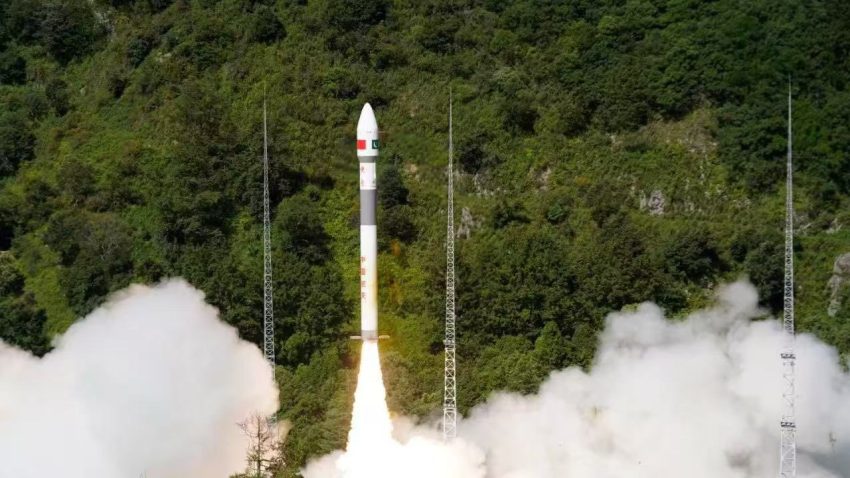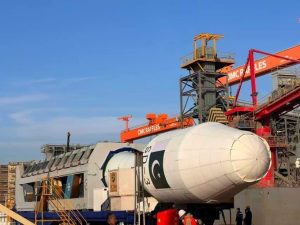ISLAMABAD – Pakistan on Thursday announced the successful launch of a new Remote Sensing Satellite, taking a giant leap in space technology race.
The satellite was launched from the Xichang Satellite Launch Center in China, the Pakistan Space and Upper Atmosphere Research Commission (SUPARCO) in a statement.
It has successfully entered its orbit, joining the Pakistan’s fleet that includes PRSS-1 launched in 2018 and the fully indigenous EO-1 launched in January 2025.
SUPARCO said the newly-launched satellite will support a wide array of applications including precision agriculture, land use management, environmental monitoring, urban planning, and disaster mitigation.
It features advanced sensors that will enable real-time tracking of floods, landslides, glacier melt, earthquakes, and deforestation.
It will also aid national infrastructure projects, particularly under the China Pakistan Economic Corridor (CPEC), by identifying geohazard risks, mapping transportation routes, and guiding sustainable development strategies.
This mission also reflects the growing maturity of Pakistan’s space program over the past decade. The journey was reignited in 2011 with the launch of PakSat-1R, a communications satellite developed through close collaboration with China. It was followed by PakTES-1A and PRSS-1 in 2018, which laid the foundation for Earth observation and remote sensing capabilities.
Federal Minister for Planning, Development and Special Initiatives Ahsan Iqbal has congratulated the nation on the successful launch of Pakistan’s new remote sensing satellite, calling it a significant milestone in the country’s space program.
Speaking after the launch, which was carried out by SUPARCO in collaboration with China, Ahsan Iqbal expressed deep gratitude to the entire nation, the SUPARCO team, engineers, scientists, and the government of China for their full support.
“The satellite has successfully entered its designated orbit,” the minister confirmed. “This achievement marks another landmark in Pakistan’s journey toward self-reliance in space technology.”
He emphasized the government’s vision to restore Pakistan’s leadership role in the space sector. “It is our goal to reposition Pakistan as a regional leader in space technology,” he said.
Ahsan Iqbal also revealed ambitious plans for the future, including sending a Pakistani astronaut into space next year with Chinese assistance and completing a lunar mission by 2035.














